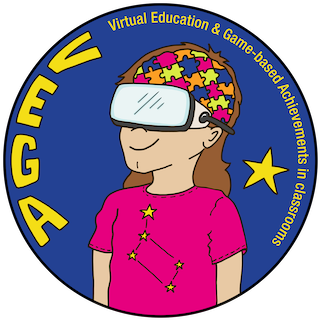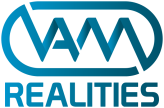
Full project title
Virtual reality Education & Game based Achievements in classrooms
Project acronym
VEGA
Coordinator/applicant
English
Country of coordinator’s
or applicant’s residence
or applicant’s residence
Finland
Contact person
Anette Hjerpe
E-mail address
Programme/fund
Erasmus+
Project duration
01.12.2020 - 30.11.2022
Project weblinks
EU project showcase![]()
Project description
To mobilize students’ interest and engagement in school activities is one of the main challenges that all teachers share irrespective of country, education level, and the subject they teach. We address this challenge by promoting teaching based on computer games (Game-based learning - GBL) as well as Virtual Reality and Augmented Reality applications (VR/AR). They have the potential to facilitate the learning process in a way that respects the students’ cognitive, social, and cultural backgrounds while addressing the curriculum standards that they need to attain. Our aim is to support teaching maths, physics, biology, chemistry, IT, foreign languages, civics, and art in primary, secondary, and upper secondary schools.
To achieve this, there are several intermediate steps to take:
- Research in the field of computer games and VR/AR applications for educational use.
- Training the core group of teachers developing and implementing scenarios.ga
- Proposing accessible and flexible digital games and VR/AR applications for schools.
- Developing teaching scenarios for integrating them into the school curriculum.
- Piloting them with school teachers and students.
- Developing the publication containing all these elements.
- Disseminating the publication to leverage its wider impact.
The main target groups are the teachers from the partner countries. The students of these teachers are indirect beneficiaries - the adoption of new teaching methods will impact their motivation, creativity, problem-solving, and learning outcomes.
The main project output is the publication, which 4 parts are meant to be a practical guide for teachers willing to enter the field of these particular technologies and their use in classes:
1. Research report and introduction to the pedagogy of play
The research findings will be presented in a short and consistent form to give teachers a general picture of the current situation in the field. We will also explain the principles of the pedagogy that values digital games and virtual apps as powerful tools for learning.
2. Teaching scenarios of GBL
Presenting the use of digital games across the curriculum, developed for primary, secondary, and upper secondary schools.
3. Teaching scenarios of VR/AR
Designed according to the same structure, methodology, and target as the previous one, but in focus on VR and AR apps. An important additional element of this part will be activities involving students in creating their own VR environments thanks to the usage of 360 cameras and dedicated software.
4. Resources and tools
This chapter provides ideas on where to find concrete resources and tools for the classroom in games technology for educational purposes, VR/AR for schools, directories of educational games, VR/AR apps facilitating searching for relevant products, and external tutorials on teaching with games and VR/AR apps.


